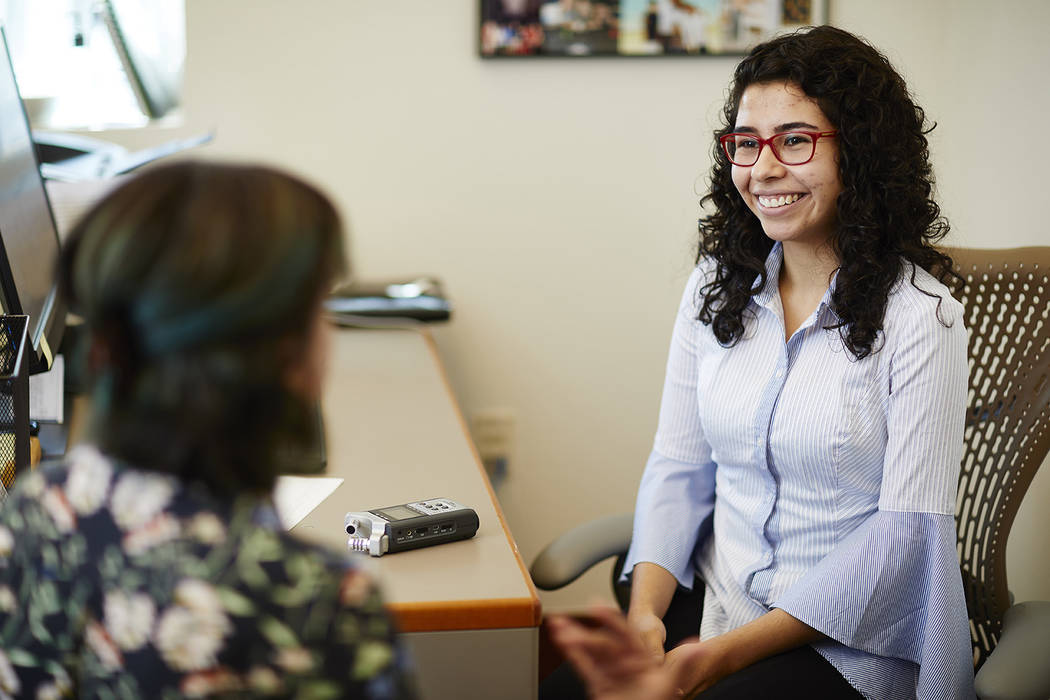UNLV amasses more than 100 interviews of Latinx residents

Latinos have contributed to Las Vegas politically, economically, in the hotel industry and in professional careers, said Maribel Estrada Calderon, a student working on the Latinx Voices of Southern Nevada project at UNLV.
The oral history project aimed at sharing the stories of the Latinx population in the valley was created in September after UNLV University Libraries was awarded a $100,000 challenge grant. Today the group of seven students working on the project has collected over 100 oral, recorded histories from Las Vegas Latinx residents. Latinx is a gender-neutral term for Latinos and Latinas.
“We ask people about their traditions, where they came from, how (Las Vegas) has changed, what they did here, where they worked — all of the things that make up a life,” said Claytee White, director of the UNLV Oral History Research Center.
Monserrath Hernandez, 24, one of the students working on the project, said they started off with 40 to 50 names of “narrators,” or people to interview, and now have a waiting list of about 250 names.
Hernandez said about half the narrators they’ve chosen to interview had heard about the project. For those who hadn’t, the students explained the project, told them who nominated them and asked if they would be interviewed.
About 25 percent of the interviews are conducted in Spanish, the students said, and they typically last about an hour and a half to two hours.
Some typical questions: Where did you come from? What was that place like? How long have you been here? What brought you to Las Vegas? How has city changed since you came? How have you seen the Latinx population change in that time period?
“People are so genuine,” Hernandez said. “They can be so emotional, telling us things they haven’t told anyone in years. And telling us about trauma they may have never even told their own families.”
Elsa Lopez, 23, another student on the project, said she often ends up crying along with the narrators because of how emotional the interviews can be.
The students said they try to get a diversity across generations, often interviewing people who came to the city before the 1950s. They said that after an interview, the narrator often suggests three or four more people the students should interview.
“The Latinx population in town, despite the generations represented and despite the city being known as a transient city, is a very established community and one that is continuing to grow,” said Rodrigo Vazquez, 27, a student on the project.
Vazquez also said he feels a strong sense of responsibility to tell people’s stories and believes allowing them to narrate their lives is “the best way to tell the stories of these communities.” He added that many of the interviews have affected his life.
“I feel like I fall in love with Las Vegas more and more; everyone that we have (interviewed) has differed so much,” Lopez said.
She added that she feels most connected to her interviewees when they remind her of her own parents, who have worked blue-collar jobs and often don’t get the recognition for their contributions to Las Vegas.
Barbara Tabach, project coordinator, said the process to finalize the interviews is a long one, as students must transcribe Spanish-language interviews and write a preface and table of contents.
Tabach said the students on the project are all bilingual.
Though the project is designated to last three years, White said it will be neverending.